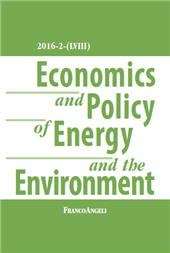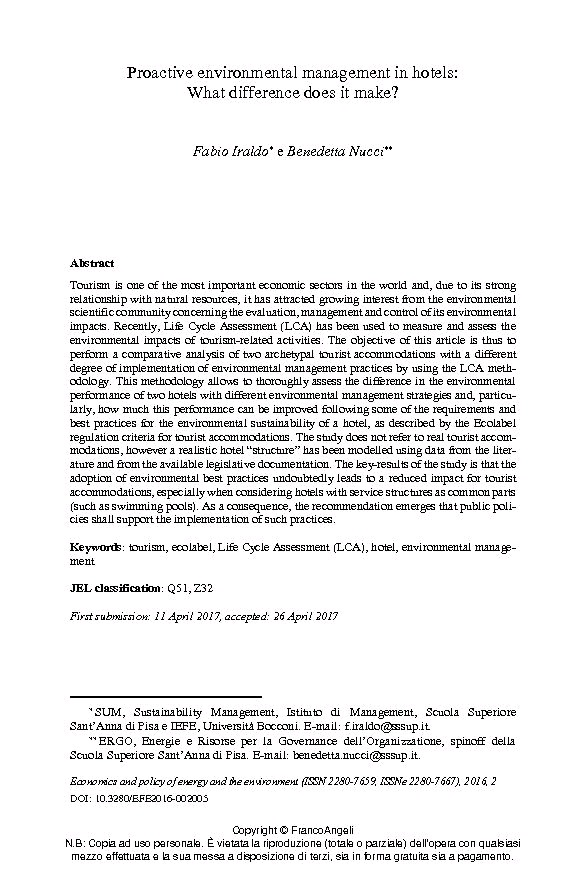Proactive environmental management in hotels : what difference does it make?
81-106 p.
Tourism is one of the most important economic sectors in the world and, due to its strong relationship with natural resources, it has attracted growing interest from the environmental scientific community concerning the evaluation, management and control of its environmental impacts. Recently, Life Cycle Assessment (LCA) has been used to measure and assess the environmental impacts of tourism-related activities. The objective of this article is thus to perform a comparative analysis of two archetypal tourist accommodations with a different degree of implementation of environmental management practices by using the LCA methodology.
This methodology allows to thoroughly assess the difference in the environmental performance of two hotels with different environmental management strategies and, particularly, how much this performance can be improved following some of the requirements and best practices for the environmental sustainability of a hotel, as described by the Ecolabel regulation criteria for tourist accommodations. The study does not refer to real tourist ac-commodations, however a realistic hotel "structure" has been modelled using data from the literature and from the available legislative documentation. The key-results of the study is that the adoption of environmental best practices undoubtedly leads to a reduced impact for tourist accommodations, especially when considering hotels with service structures as common parts (such as swimming pools). As a consequence, the recommendation emerges that public policies shall support the implementation of such practices. [Publisher's Text].
Fait partie de
Economics and Policy of Energy and Environment : 2, 2016-
Articles du même numéro (disponibles individuellement)
-
Informations
Code DOI : 10.3280/EFE2016-002005
ISSN: 2280-7667
DISCIPLINES
KEYWORDS
- Tourism, ecolabel, Life Cycle Assessment (LCA), hotel, environmental man-agement



